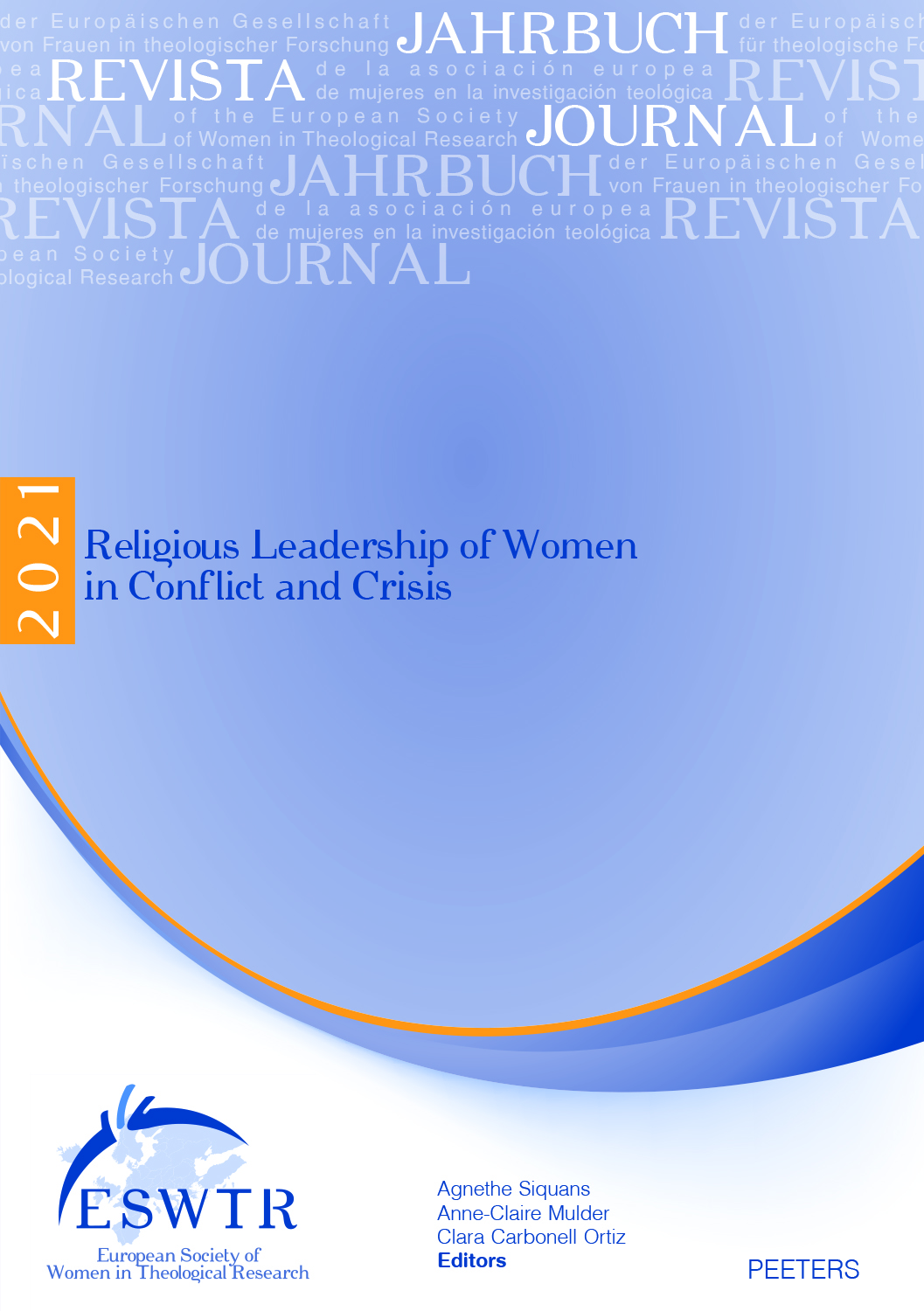 previous article in this issue previous article in this issue | next article in this issue  |

Preview first page |
Document Details : Title: Re-imagining World Christianity Subtitle: Challenging Territorial Essentialism Author(s): HOF, Eleonora Journal: Journal of the European Society of Women in Theological Research Volume: 22 Date: 2014 Pages: 173-186 DOI: 10.2143/ESWTR.22.0.3040797 Abstract : The story of a church service in Tanzania led by American missionaries is used as a tool to explore, critique and expand prevalent imaginaries of World Christianity. The first imaginary tacitly leaves out the West in World Christianity by continuing western theological normativity. Second, there is a geographic imaginary that interprets World Christianity according to continental/regional divisions. The last imaginary stresses transnational ties and their complexity and is attentive to the way in which power relationships are shaped. Territorial essentialism, which is a common strategy in the first two imaginaries, nevertheless hampers the study of World Christianity. It is defined as the naturalization of a given territory by using it as the primary lens of interpretation. Three problems connected to this strategy are discussed: territorial essentialism could give rise to a triumphalist discourse, it imagines World Christianity as a level playing field, and it can lead to considering cultures as bounded wholes. Using gender as a critical category, tropes of imagining World Christianity are challenged, shifting attention from travelling and exploration towards storytelling. Storytelling provides room for ambivalence, displacement, rupture, continuity, and the strategies of identity negotiation. In conclusion, I argue for a sustained emphasis on missionary geopolitics in the light of the continued missionary presence of the West. Die Geschichte eines Gottesdienstes in Tansania unter der Leitung von amerikanischen Missionaren wird als Mittel verwendet, um vorherrschende Vorstellungen von Weltchristenheit zu untersuchen, kritisieren und auszuweiten. Das erste Imaginäre schließt stillschweigend den Westen aus der Weltchristenheit aus, indem eine westliche theologische Normativität weiterverfolgt wird. Zweitens gibt es ein geographisches Imaginäres, das die Weltchristenheit nach kontinentalen, regionalen Unterscheidungen interpretiert. Das letzte Imaginäre unterstreicht transnationale Verbindungen und ihre Komplexität und zeigt ein feines Gespür dafür, wie Machtverhältnisse gebildet werden. Territorialer Essentialismus, eine häufige Strategie in den beiden ersten Imaginären, behindert das Studium der Weltchristenheit. Er wird als die Naturalisierung eines bestimmten Territoriums durch seine Verwendung als vorherrschende Interpretationsperspektive definiert. Drei damit zusammenhängende Probleme werden diskutiert: Territorialer Essentialismus kann zu einem triumphalistischen Diskurs führen; er kann die Weltchristenheit so darstellen, als ob gleiche Voraussetzungen für alle bestünden; und er kann dazu führen, dass Kulturen als geschlossenes Ganzes gesehen werden. Der Gebrauch von Gender als kritische Kategorie stellt Metaphern, wie Weltchristenheit vorgestellt wird, in Frage, indem die Aufmerksamkeit von Reisen und Erforschung zum Erzählen hin verschoben wird. Erzählen schafft Raum für Ambivalenz, Verlagerung, Bruch, Kontinuität und Strategien der Verhandlung von Identitäten. Zum Schluss plädiere ich für die Betonung der missionarischen Geopolitik angesichts der fortdauernden missionarischen Präsenz des Westens. Esta historia de un culto en Tanzania dirigida por misioneros norte americanos va a servir como herramienta para explorar, criticar y ampliar los imagi narios frecuentes del Cristianismo Mundial. La primera idea nos recuerda que Occidente deja fuera al resto del mundo cristiano al mantener la normatividad teológica occidental. En segundo lugar, existe un imaginario geográfico que interpreta el mundo cristiano de acuerdo a las divisiones continental/área. La última idea subraya los lazos transnacionales y su complejidad y quiere estar atenta a la manera en que se forman las relaciones de poder. El esencialismo territorial, que es una estrategia común en las dos primeras discusiones, dificulta el estudio de la totalidad del cristianismo a nivel mundial. Esto es definido como la naturalización de un deter minado territorio, usando ese territorio como objeto principal de la interpretación. Estos tres problemas relacionados desde esta perspectiva se pueden analizar entendiendo que el esencialismo territorial podría dar lugar a un discurso triunfalista, desde la perspectiva de este cristianismo mundial, que entiende una igualdad de condiciones en las distintas geografías, y puede llevar a considerar a las culturas como realidades acotadas. Utilizando el género como categoría crítica, nos ponemos como reto imaginar un cristianismo mundial, cambiar los intereses y explorar las narraciones de historias. Éstas proporcionan espacios de cierta ambivalencia para el desplazamiento, la ruptura, la continuidad y las estrategias de negociación de identidad. En conclusión, propongo una revisión de la geopolítica de los misioneros a la luz de la continua presencia misionera de Occidente. |
 |


